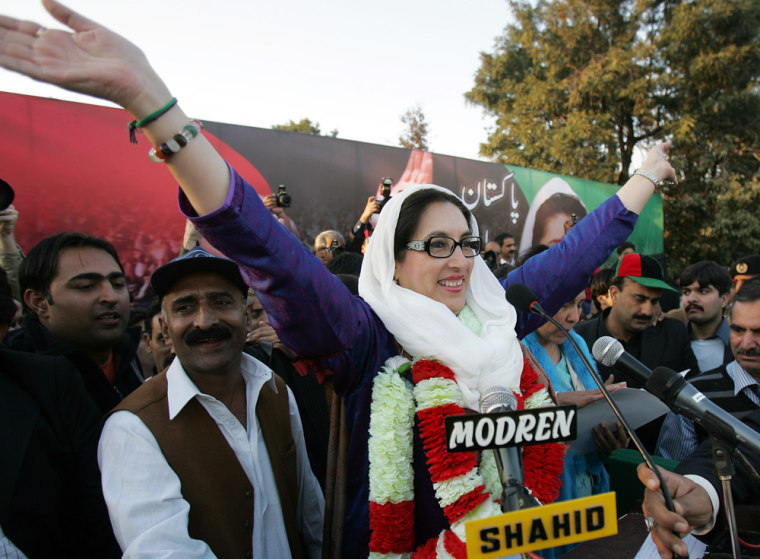The United Nations formally began a six-month investigation Wednesday into the slaying of former Pakistani Prime Minister Benazir Bhutto, a process that the government hopes will lead to her killers being brought to justice.
The three-member U.N. commission is being led by Chile's U.N. Ambassador Heraldo Munoz, a dissident during the dictatorship of Gen. Augusto Pinochet. It began its work on Wednesday, said U.N. spokeswoman in Pakistan Ishrat Rizvi.
Like many criminal investigations into high-profile crimes or terrorist attacks in Pakistan, there has been little progress in the domestic probe into the slaying of Bhutto, who was killed in late 2007 as she campaigned to return her political party to power in parliamentary elections.
Her husband, Asif Ali Zardari, took over the party and was elected president by lawmakers in September 2008.
Party suspects Musharraf
The government at the time of the killing, led by President Pervez Musharraf, blamed Baitullah Mehsud, a Pakistani Taliban commander with reported links to al-Qaida. CIA officials also said Mehsud was the chief suspect.
But Bhutto's party repeatedly hinted that Musharraf or his allies were involved and demanded a U.N. probe, claiming it was the only way the whole truth would be revealed.
Along with Munoz, the other U.N. investigators are former Indonesian attorney general Marzuki Darusman and Ireland's former deputy police commissioner, Peter Fitzgerald, who headed the initial U.N. inquiry into the assassination of former Lebanese Prime Minister Rafik Hariri in 2005.
Darusman said he and his colleagues had not yet arrived in Pakistan, but would do so soon.
"Our mandate is to establish the facts and circumstances and then report to the secretary-general who will then inform the Pakistani government," he said by telephone from Indonesia.
He said it would be up to the Pakistani government to bring the suspects to trial, drawing a contrast with the Hariri probe, which includes the setting up of a U.N-backed tribunal.
Husband favors U.N. inquiry
Since his election, Zardari has continued lobbying for a U.N. inquiry, but has angered some critics within his party by apparently not urging the police to aggressively investigate the attack, seemingly content to rely on the world body probe.
Zardari said earlier this year that he believed the commission would "expose the financiers, the organizers, the sponsors and the conspirators of this terrorist act and bring them to justice."
Bhutto died in a gun-and-suicide bomb attack by at least one assassin in the city of Rawalpindi, close to the capital Islamabad. There was no autopsy performed on her body and authorities hosed down the street after the attack, drawing criticism from her relatives who said it was an attempt to wash away evidence.
